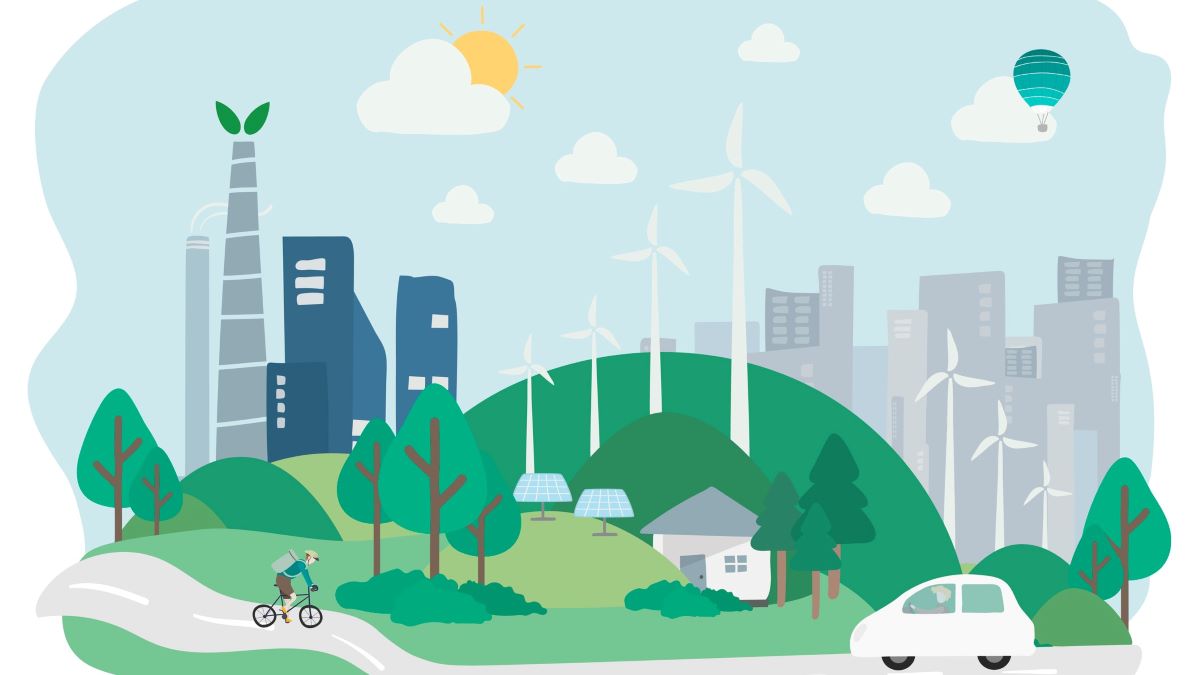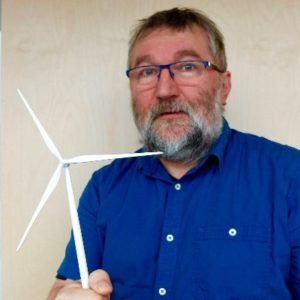

By Dirk Vansintjan president of the European Federation of Renewable Energy Cooperatives, REScoop.eu.
The article was published here
The political and economic measures taken to revive our economy following the Corona crisis need to ensure long-term resilience of the system. Strengthening local communities will be the key to achieving this objective, says Dirk Vansintjan.
Over the coming weeks, EU leaders will be working on a plan to help rebuild the economy after the crisis brought about by the Corona virus. In a meeting among Heads of State last week, European Council President Charles Michel emphasised the need to “come up with a proposal to ensure we are able to cope with this crisis and to ensure the stability of the EU”.
The current situation is putting our society to a vital test: Are we equipped to develop responses to this crisis that will ensure the long-term stability of our societies?
I strongly believe that the answer can be yes. But this can only be the case if we ensure that the measures taken make our economies and societies more resilient in the long term. Whilst it is crucial to develop solutions that will revitalise our economy following this crisis in the short and medium term, we must not lose sight of other existing threats to our economies and our citizens.
Several experts have pointed out over the past weeks that human health and the state of the environment are inextricably linked – be it through the increased exposure to wildlife, or the threat air pollution poses to our health.
Corona crisis aside, we know that climate change is one of the most severe and urgent systemic threats to our global community. Unless we start integrating the environment into our economic decisions, all we are doing is putting a band-aid on the wound without treating the cause – and hence inevitably setting ourselves up for more crises of this sort.
One promising thing that has come out of the current situation is the evidence that it is possible for governments to allocate resources to solve urgent situations, where they were previously stuck in political disagreements. Our leaders must leverage this newly found level of cooperation to tackle issues such as climate change heads-on, so we won’t have to do it in crisis mode.
The measures taken after the economic crisis in 2008 mainly bailed out the big financial institutions without tackling some of the underlying flaws of our economic system, namely consumerism and the environmental destruction that goes with it, wealth concentration, and lack of democratic control at the local level. It left many citizens disempowered at the time, and once again today, those suffering the most from the economic crisis ahead will likely be the small businesses in our neighbourhoods. The solutions proposed today need to safeguard the livelihoods of European citizens.
A new balance between globalisation and the local economy
One very concrete way to move towards such a society will be to strengthen the growth of energy communities in Europe.
By investing in and operating clean energy technologies and measures, energy communities have been known to strengthen the social and economic welfare of their community whilst taking measures to reduce CO2 emissions and preserve the environment. They hence provide an economically sound model that tackles the exact challenges we need to solve to build a sustainable future for ourselves.
Don’t just take my word for it, let the examples speak for themselves:
For Belgium, researchers estimated that the energy transition will require investment between €300 and €400 billion up to 2050. But Belgian citizens together have about €278 billion of sleeping savings in banks, which could be invested locally. Such investment could create between 20,000 and 60,000 jobs, and save the Belgian economy up to €20 billion a year by avoiding the import of gas, oil, coal and uranium.
A German study reveals the return for the local economy and communities is up to 8 times higher if these renewable production facilities are owned by local citizens, local energy communities, and other SME’s. In particular, income from local renewable energy production can provide an indispensable basis to make the necessary investments in energy efficiency in buildings, and empowers citizens to get involved – thus strengthening not only our economy, but also our European democratic model.
In 1988, the small Austrian town Güssing had no significant industry or trade business. It is now thriving thanks to a consequent transition to local renewable resources. Instead of high unemployment, more than 1,000 jobs were created. An annual bill of €6 million for imported fossil fuels was turned into a revenue of €14 million from local renewable energy production.
Leading by example, the municipality reduced its energy expenditure by almost 50% through energy efficiency, and the citizens and businesses followed. Following Güssing’s example, more than 15 regions in Austria are now energy independent with regard to electricity, heating, and/or transportation.
How can the EU help strengthen energy communities?
The potential of local communities has already been recognised by EU leaders in the Clean Energy Package through the concepts of citizen and renewable energy communities.
As the EU works on developing follow-up legislation in the coming years, it must ensure to truly empower local communities. This can be done for instance by facilitating access to larger funding sources such as the EFSI investment tool and other EIB tools (such as ELENA or guarantees).
Citizens across Europe stand ready to contribute to and lead the societal transformation needed in our communities. We urge our elected representatives to make smart and courageous decisions that will enable humanity to move to a truly sustainable, healthy, and resilient way of life.
If we are to build a truly sustainable society for the long term and for future generations, we need to make these changes now. Let’s stay in the cooperative mode. There is no other way.
